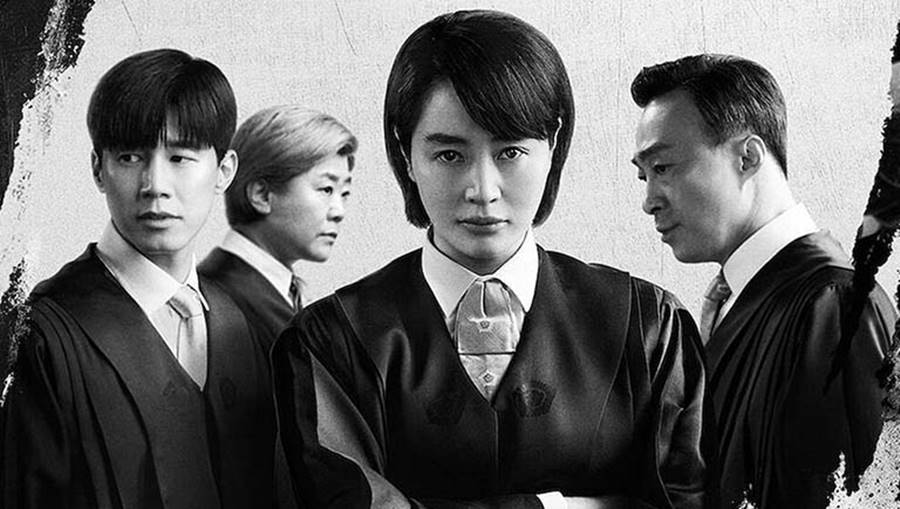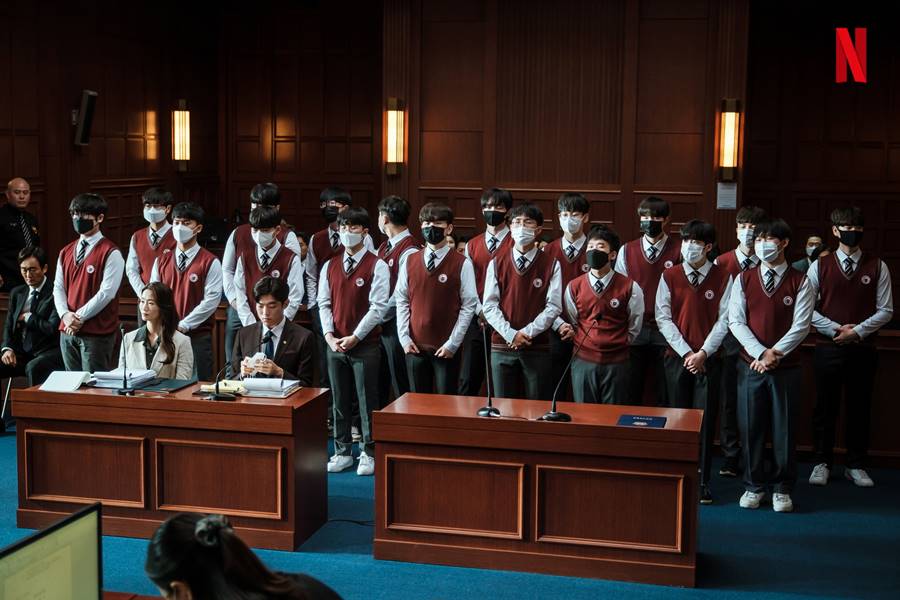
By Jae-Ha Kim
Substack
March 4, 2022
☆☆☆☆
Shim Eun-seok (played by Kim Hye-soo)
Cha Tae-joo (played by Kim Mu-yeol)
↑Note: Korean names denote the surname followed by the given name.
There has been much debate in South Korea about how to punish and rehabilitate underage criminals. “Juvenile Justice” deals with these issues in a taut manner, using the law to mete out judicial revenge.
Shim Eun-seok is a tough judge working in the juvenile court system. She makes no bones about the fact that she despises juvenile offenders. To her gentler colleague, Cha Tae-joo, she at first appears unreasonable and unwilling to see the potential in children.
In a different series, the characters would’ve been reversed, with the hard-nosed role going to the man and the more vulnerable part going to the woman. But this K-drama works precisely because Kim Hye-soo’s portrayal goes against the grain of society’s expectations for how women are supposed to behave and be.
“Juvenile Justice” begins with a horrifying case. A young teenager shows up bloodied at a police station and confesses that he has killed a younger neighbor who lives in his apartment complex. He also mutilated the child’s body. Though the police find it odd that a self-proclaimed murderer comes forward, they also don’t see a reason not to take the boy at his word. But because the child is under 14 — the age where criminals can be sentenced to prison — he will not serve any jail time.
This is the loophole that Eun-seok finds reprehensible and wants changed. How can society allow a murderer to go free, even if they are underage?

The teens and tweens who appear in her court range from privileged students whose parents paid big bucks for them to enter the Descartes program (which provides answers to tests); to runaways who prostitute each other; to teens who assault a classmate — who had been convicted of committing crimes when he was younger — who is trying to live a better life.
Near the end, Eun-seok gets into an improbable fight with a young thug that is satisfying, but also over-the-top weird.
As I was preparing to write this, I was reminded that while the cases presented in this series are fictional, they’re not much worse than what’s happening in reality. I read about tweens in Indiana who lured a 12-year-old for a sleepover for the purposes of torturing her. In a world like this, how do you balance justice with the fate of children who may be too young to understand the depravity of their actions?
Airdates: Eight hour-long episodes dropped on Netflix on February 25, 2022.
Spoiler Alert: About five years ago, a pair of elementary school students dropped bricks from high atop a building to see what would happen. One of the bricks hit and killed Eun-seok’s kindergarten-age son. The children’s age got them therapy. But instead of being rehabilitated, their depravity increased. They grew up to be rapists who filmed girls being brutally assaulted. They saw nothing wrong in making money off of the bodies of their victims.
Tae-joo has a secret of his own. When he was a child, he committed petty crimes, but a judge (Lee Sung-min from “Misaeng“) gave him hope. Tae-joo became a judge because of him and would later work for him. Because he was rehabilitated, he believes that other children — no matter how horrible their actions are — can change for the better as well.
Lee Sung-min’s character was slated to become a politician, until his elder son gets caught up in the Descartes scandal. (His wife had signed their child up, against his wishes.) When he’s forced to resign, a new judge (played by Lee Jung-eun from “Parasite“) takes over.
© 2022 JAE-HA KIM | All Rights Reserved
One thought on ““Juvenile Justice” (소년 심판)”